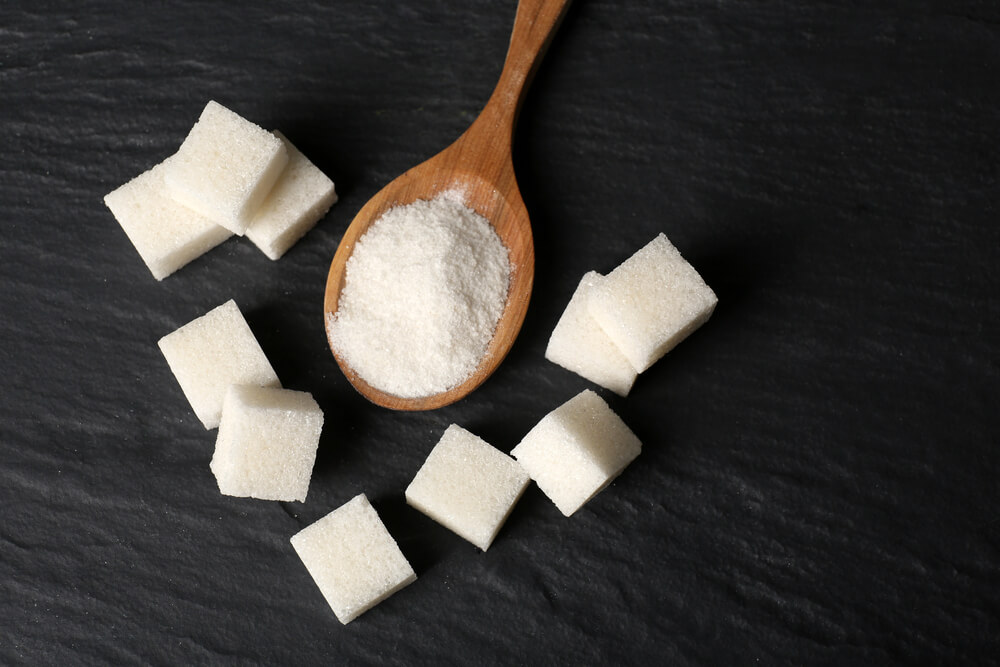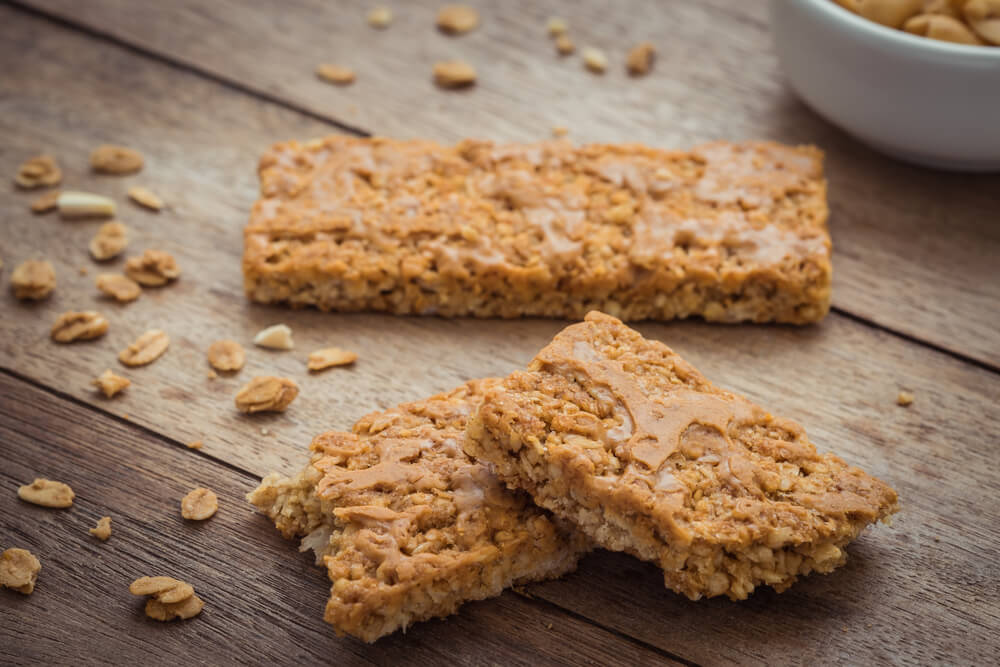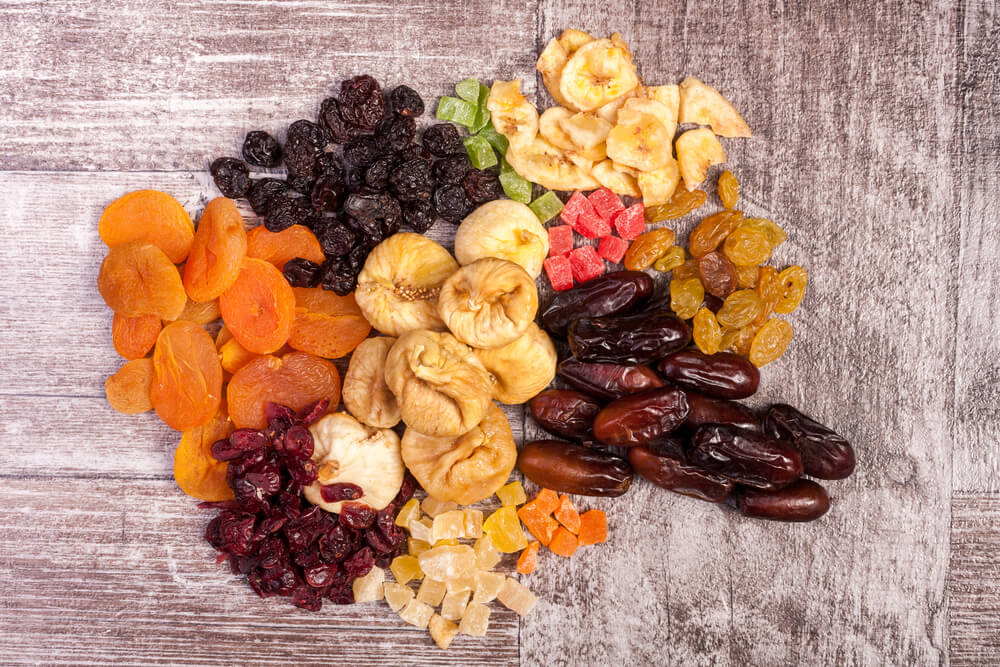
Food is delicious, but when it comes to eating healthy, some foods are best left on the supermarket shelves.What does sugar do to your body, today we explore just that.
Which food items in particular?
Those with lots of added sugar. There have been plenty of studies done on the different nutritional aspects of food and how ingredients such as fat can be harmful to the consumer’s health. Sugar is no exception. Recently, there has been a growing interest in the effects of added sugar.
The twist is that this interest does not surround obviously sugary foods like desserts and soft drinks; instead, the focus is on supposedly healthy foods that contain a lot of added sugar that people don’t notice because they believe the food to be healthy.
In fact, sugar can be found in about 80 percent of all types of food you can get at a supermarket.
Recently, there has been a growing interest in the effects of added sugar. The twist is that this interest does not surround obviously sugary foods like desserts and soft drinks; instead, the focus is on supposedly healthy foods that contain a lot of added sugar that people don’t notice because they believe the food to be healthy.
Here are some examples of seemingly innocent foods that contain way too much sugar:
Granola Bars
Granola bars typically conjure up an image of people hiking up mountains or resting after a gym workout. These healthy snack choices, however, actually contain a lot of added sugars. So next time you think of grabbing a granola bar as a snack, try putting together your own trail mix instead. A small jar or snack bag of nuts and dried fruits are just as portable as a granola bar, and you can avoid all the added sugars that goes into bonding a granola bar together.
Not just the sugary cereals that kids love. Even some fiber cereals have a surprisingly high amount of added sugars that is just unnecessary. If you aren’t already doing so, it’s time to get into the habit of reading the Nutrition Facts labels. Compare the nutrition facts of cereals to see which has the lower amount of sugar per serving and be sure to buy the healthiest option.
Barbeque Sauce
Barbecue sauces are usually made with a natural sugar base like honey or molasses. Unfortunately, this natural base only contributes to the problem when unnatural sugars are added, causing these sauces to contain a very high amount of unhealthy sugar. Instead of slathering your proteins with sugary barbeque sauce, try seasoning meats like steak with a dry rub of flavorful spices before cooking. This will cut down on the sugar levels while still keeping the flavor.
Ketchup
Ketchup is made from tomatoes, which have great natural sugars, but ketchup is not so well loved because of its naturalness. It is popular because of all that added sugar that makes it just sweet enough to merit being added to everything at your cookout. Try looking for ketchup brands with lower sugar and aim to use it in moderation.
Juice
It may not come as a surprise that fruit juices contain sugar, but even those juices that boast only natural sugars still have an exorbitant amount of sugar. The amount of fruit that needs to be juiced in order to fill a bottle just means that the natural sugars are far more concentrated. Here, too, looking at the nutrition facts before purchasing can help you cut down on your sugar intake. That being said, water is by and large the best beverage for any sort of diet that requires cutting back on anything unhealthy. Even things like sweet tea and lemonade, which are typically categorized as not terribly unhealthy because they are not sodas, contain a lot of unhealthy added sugar.
Flavored Yogurt
Plain yogurt may be tasteless, but the reality is that the flavor of flavored yogurts is sugar and lots of it. It’s easy to overlook the possibility of yogurt as an unhealthy food because of its great dietary benefits (yogurt is fantastic for digestive health), but most yogurts – even low fat yogurts – contain unnecessary amounts of sugar. Try making the switch to Greek yogurt which is higher in protein levels and can always be sweetened by a little drizzle of honey.
Dried Fruits
Dried fruits are healthy for you, which may make you question its place on this list. The shrunken size of dried fruits may actually cause people to eat more of them without realizing that they are still ingesting a similar amount of sugar as they would if eating the hydrated version. The amount of sugar doesn’t change much when a fruit is dehydrated, there is just less of a chance that you’ll feel full after eating a piece of dried fruit than you would after eating a piece of regular fruit. This lesser feeling of satiety could then result in overindulging in sugars that would not have occurred if you were eating the regular version of the fruit.
This list is only a few examples of foods with surprising amounts of sugar. You may also think that simply making a switch to artificial sweeteners may lower the risk of consuming too much unhealthy sugar, but scientists are discovering that this is not the case. Artificial sweeteners, like Splenda and Sweet n’ Low, have been found to actually do more harm than good for the body. These sweeteners alter the body’s ability to process glucose because the body becomes unfamiliar with the process when real sugar is introduced to the system after being flooded with artificial sugar. This can even lead to diseases like metabolic syndrome and type-2 diabetes.
What Does Sugar Do To Your Body?
So what exactly is it that too much sugar does to your body? Australian director and actor, Damon Gameau, found out by experimenting with his own health. He switched from a healthy, low-sugar diet, to a diet that consisted of eating 40 teaspoons of sugar a day for two months, which he documented in the film “That Sugar Film.” For his diet, he stayed away from obviously sugary foods like candy and soda and instead created a diet consisting only of foods that are perceived to be good for you, like yogurt and fruit juice, but that contain tons of added sugar.
The results were alarming. After just 18 days, Gameau had already developed signs of a fatty liver. He gained weight, found that he never felt that the food he ate satisfied him and he experienced changes in his moods. Gameau noted that his weight gain and health problems were not the result of eating more food; in fact, his calorie count remained about the same as when he was eating unprocessed foods. It was the added sugar that caused all the problems. Plus, once he returned to his normal diet, the effects went away.
The purpose of the Gameau’s film was not to demonize sugar. Sugar is fine in moderation, but ingesting too much of it can lead to serious health problems. To better understand the problem then let’s look at how sugar works. Sugars pass through your stomach quickly to begin the process of breaking down. If there’s a large amount of sugar, it could cause a sugar rush and then a crash because of the speed needed to digest all that sugar. Sugar accompanied by fiber, like the scenario found in natural fruits, helps to slow down the process of digestion and not cause these rushes. When sugar is digested, it forms glucose, which is carried by the blood around the body to provide energy. Insulin is produced to help package and deliver the sugar. Less sugar means more stable energy because, if the body has to digest sugar and distribute glucose quickly, then the energy becomes unstable. A moderate amount of natural sugars will help you stay energized throughout the day.
Now let’s look at some health problems that can be caused by too much indulgence in sugar:
Cavities
This is the big one, the one you’ve heard about since you were small and were caught eating too much candy. Cavities are caused when bacteria around the teeth feed on the sugar and create acid that wears away at enamel, so always remember to regularly brush and floss.
Insatiable Hunger
High amounts of sugar can increase your body’s output of leptin, the hormone responsible for telling your brain that you’ve had enough to eat. Too much leptin floating around actually causes your body to become less sensitive to the hormone, meaning that your brain won’t recognize that you are full. This leaves you feeling unsatisfied by what you eat so you may overeat.
Weight Gain
Weight gain is yet another huge factor. Unsatisfied stomachs lead to overeating which can cause weight gain. In addition to not satisfying your hunger and making you eat more, added sugar has a lot of extraneous calories that will eventually be turned into fat.
Insulin Resistance and Diabetes
Since insulin is produced to help digest sugar, high amounts of sugar means high amounts of insulin, again reducing your body’s sensitivity to insulin. Ineffective or insufficient amounts of insulin can result in a buildup of glucose in the blood that could lead to diabetes.
Liver Failure
This one may be a bit surprising. It’s not well known that our process for metabolizing sugar causes stress on the liver. So, naturally, more sugar means more stress on your liver, which can cause it to fail. This also holds true for the pancreas and even the heart.
High Blood Pressure
All that glucose buildup will definitely make your blood pressure rise, which can lead to a series of potentially fatal health problems. If you have high blood pressure, consider cutting back on sugar because high blood pressure is a symptom of diabetes. Get your blood pressure checked regularly. Do whatever you can to control and stay on top of hypertension.
These are all very negative aspects of sugar, but the purpose here is not to demonize sugar. In fact, it is almost impossible to completely avoid sugar. Instead, look for the healthier sources of sugar like natural fruits and veggies in order to maintain a healthy intake of sugar. Staying away from processed foods will be a huge help in bringing down the amount of sugar you eat daily.
Keep a close eye on labels as well. It’s easy to get sucked into big and bright labels that boast low sugar in giant flashy letters, but you should always turn the product over to examine the nutrition facts on the back. The order of ingredients can help you gauge the amount of sugar contained in a food. The list of ingredients always starts with the ingredient that is most prominent in the food, with the least plentiful being found at the very end of the list. Look for synonyms of sugar as well such as sucrose and high-fructose corn syrup, which are just fancy terms for added sugar.
Conclusion
Sugar isn’t bad but, like all things, it should be consumed in moderation. If you already consider yourself a healthy eater, it may be good to double check your diet for added sugars that are hidden under labels of healthy foods. And, if you have a good and healthy day food-wise, be careful about rewarding yourself with some ice cream or a donut at the end of the day. You may not realize that you’ve already had most of your daily sugar from the supposedly healthy food you eat, and that extra sugary snack may put you over the top. It is perfectly okay to indulge every once in a while, just make sure that your indulgence doesn’t last for too long!
By Sara Campanelli
Latest posts by Sara Campanelli (see all)
- Spirulina Benefits: The Supplement You Need To Try - Aug 4, 2016
- Gym Guide For Beginners - May 1, 2016
- Clean Eating Grocery List - Mar 27, 2016

























Very interesting !
Thank you!
Terry
Great information!
[…] male muscle growth, others suggest it may be unhealthy for those who need to maintain steady blood sugar levels—as self-regulated blood sugar maintenance, in any regard, can be dangerous if not conducted with […]